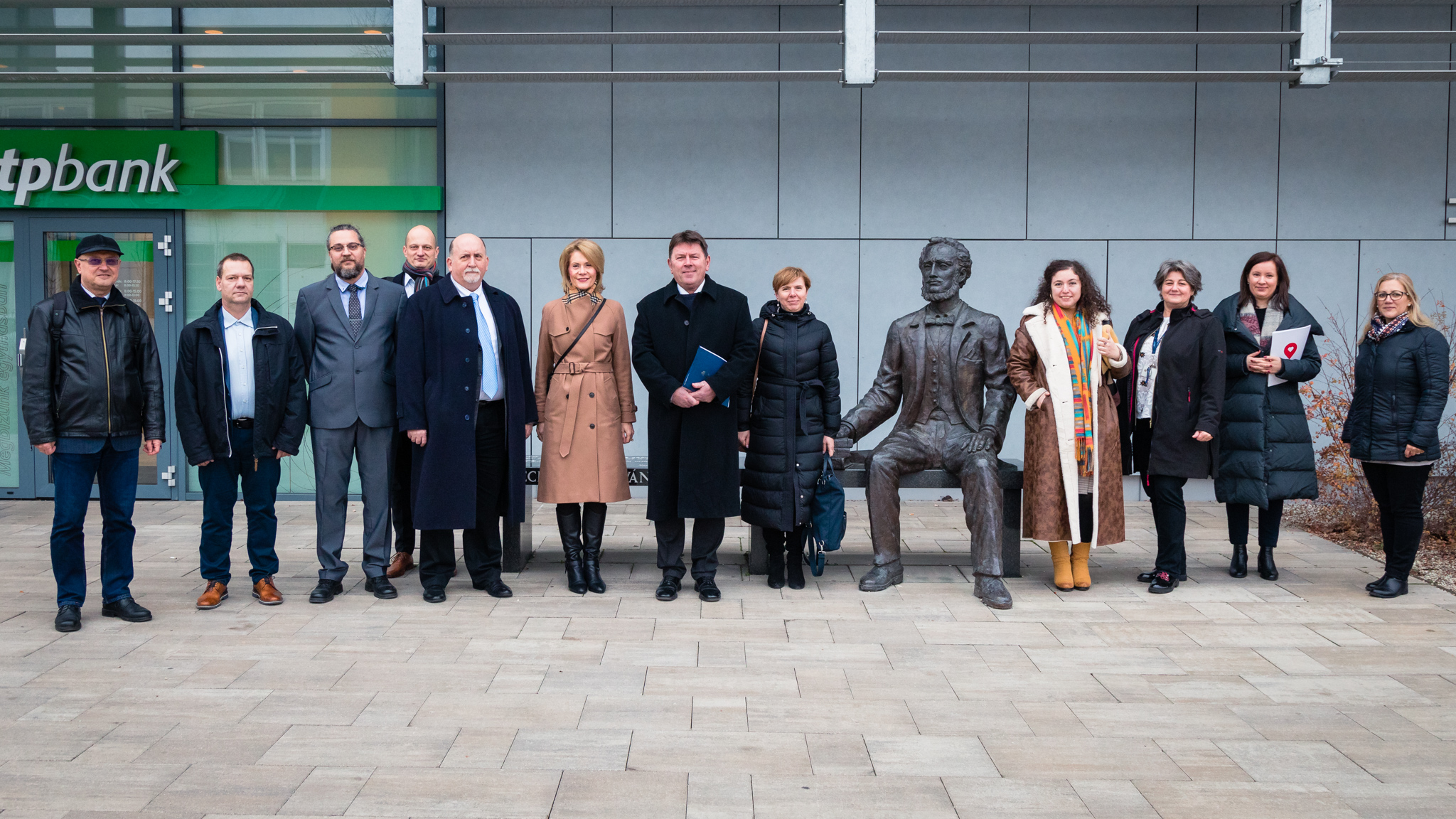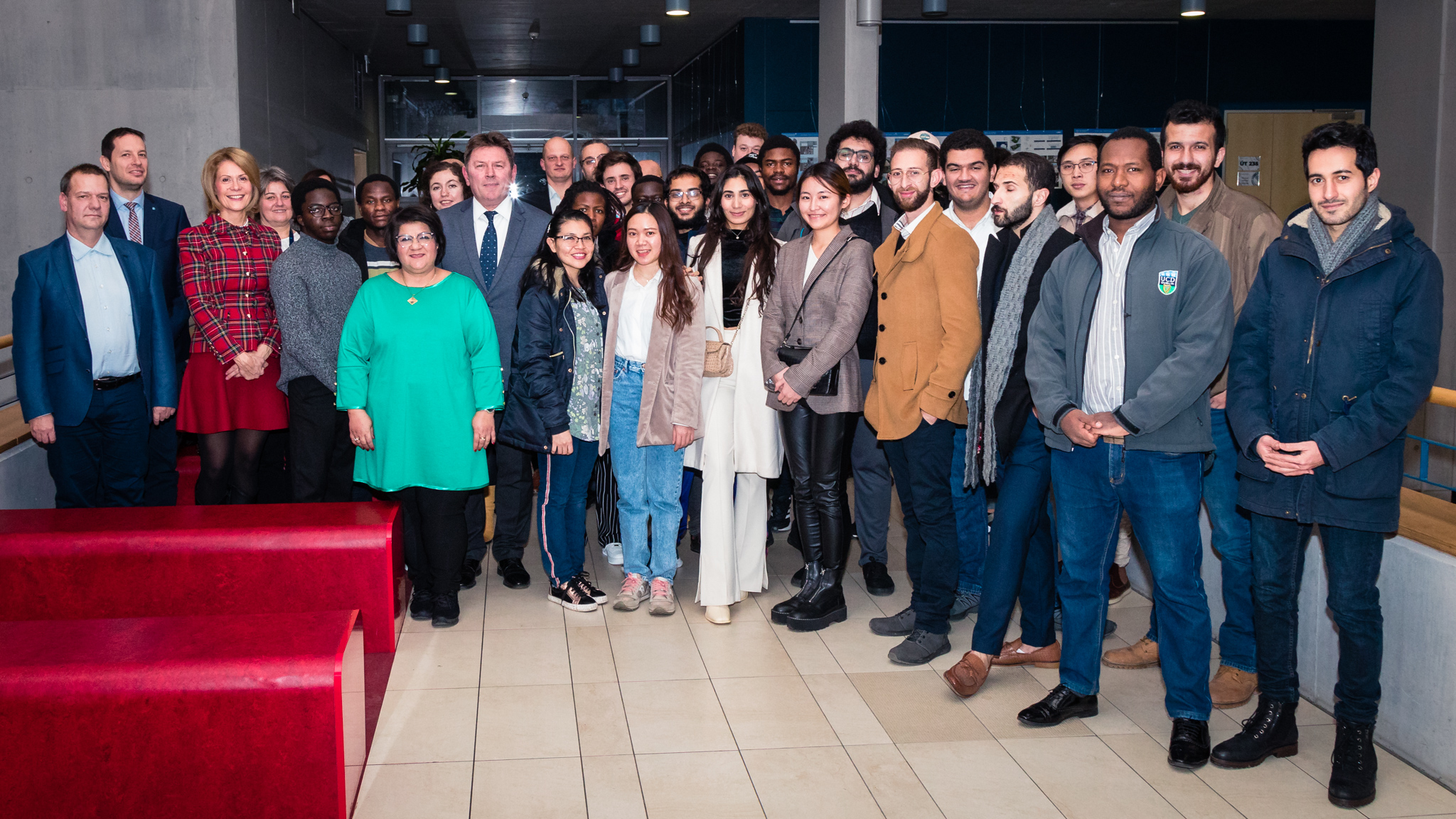Deputy State Secretary Miklós Lengyel: SZE does its utmost for international students
Széchenyi István University is fully prepared to welcome international students and provides them not only with high-quality education but also with attractive living conditions, said Miklós Lengyel, Deputy State Secretary of the Ministry of Foreign Affairs and Trade, during his visit to the institution, which was occasioned by the anniversary of the Stipendium Hungaricum higher education scholarship programme next year.
In operation since 2013, the Stipendium Hungaricum is an excellence-based scholarship programme established by the Hungarian Government, intended to increase the internationalization of Hungarian higher education and its international competitiveness. Since then, as a result, many young people from abroad have come to Hungary and acquired valuable knowledge and degrees.
Széchenyi István University has successfully participated in the programme. During his visit to the Győr campus, Miklós Lengyel, Deputy State Secretary for Training, Scholarship Programmes and Science Diplomacy at the Ministry of Foreign Affairs and Trade, was informed by the management of the institution about the results achieved.
At the meeting, Dr Eszter Lukács, Vice President for Global Strategy, explained that the University's student community of nearly 14,000 students is made up of young people from 70 countries. Of the some 800 foreign students, more than 300 are studying under the Stipendium Hungaricum programme.
This is a huge step forward, considering that the University's internationalisation programme was launched in 2016. At the same time, the number of English-taught programmes has grown dynamically, from five, six years ago, to 37 today. Such programmes are available in eight of the nine faculties, and at all academic levels - Bachelors, Masters and Doctoral.
 Deputy State Secretary Miklós Lengyel (seventh from left) and his colleagues with representatives of Széchenyi István University in front of the Management Campus building (Photo: Csaba József Májer)
Deputy State Secretary Miklós Lengyel (seventh from left) and his colleagues with representatives of Széchenyi István University in front of the Management Campus building (Photo: Csaba József Májer)
Dr Lukács also explained that great emphasis is placed on international cooperation. For example, the University is a founding member of the Regional University Network -European University (RUN-EU) consortium, established in 2020, along with two Portuguese universities and one each from the Netherlands, Austria, Ireland and Finland.
The aim of the organisation is to innovate and to develop the higher education of the future, to promote physical and virtual exchanges and to develop intensive inter-university partnerships. In this framework, not only 25 short advanced programmes have been implemented with the partners, but also a double degree MSc programme in Tourism Management and Sustainable Tourism with the University of Leiria in Portugal. In addition, Széchenyi István University has a double degree MBA programme with the University of Rhode Island in US and a double degree programme in Civil Engineering with Jiaxing University, China.
In the context of the meeting, Deputy State Secretary Miklós Lengyel said that next year will mark the tenth anniversary of the Stipendium Hungaricum higher education scholarship programme, which will provide an opportunity for evaluation. This was also the occasion for the visit to Győr.
"In addition to its educational policy objective, the scholarship programme serves both foreign economic and foreign policy relations and provides assistance to countries and their citizens in more difficult situations than ours.
It is telling that it started in 2013 with three countries and 68 participants, and now has twelve thousand participants from around ninety partner countries.
My experience at Széchenyi István University has been the most positive. The institution is fully prepared to welcome international students, does its very best for them and provides them not only with high quality education but also with attractive living conditions", the Deputy State Secretary stressed.

The Deputy State Secretary met not only with representatives of Széchenyi István University, but also with the institution's Stipendium Hungaricum scholarship students. (Photo: Csaba József Májer)











